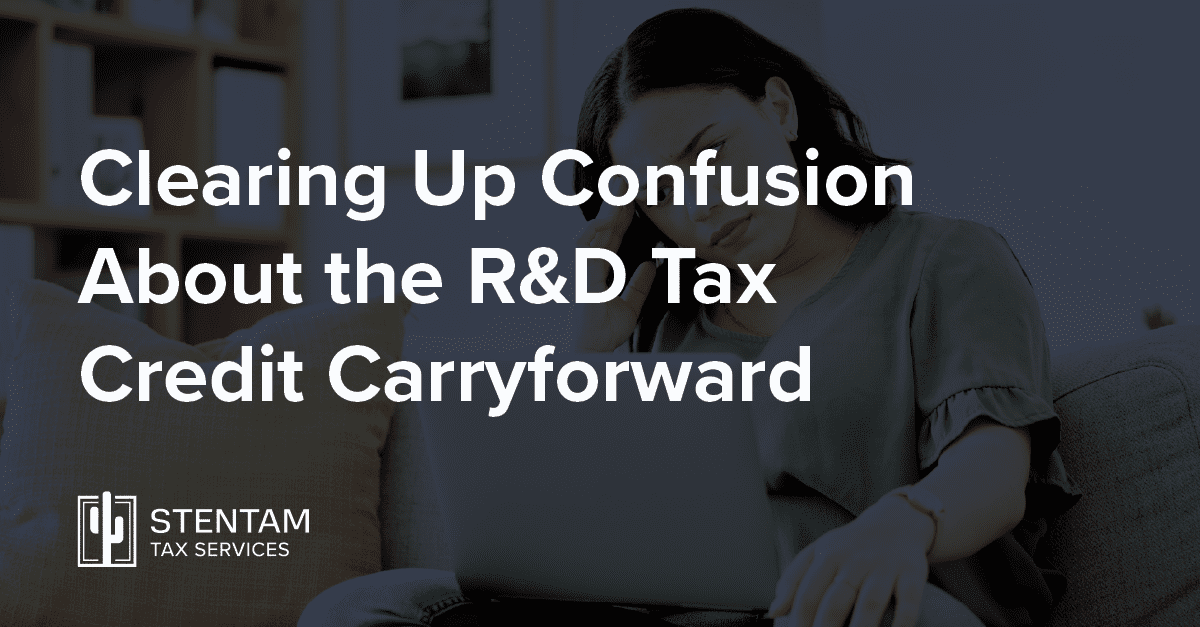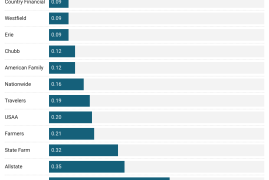Group health insurance premiums are generally not taxable.
Understanding Group Health Insurance Premiums
Group Health Insurance premiums refer to the amount paid by either the employer, employee, or both for health insurance coverage provided to a group of individuals.
What Are Group Health Insurance Premiums?
Group Health Insurance premiums are contributions made towards a health insurance plan that covers all members within a group, typically offered by employers as part of employee benefits.
Importance Of Group Health Insurance
- Cost-effectiveness: Group plans often offer lower premiums compared to individual plans.
- Coverage: Provides comprehensive health benefits to all members of the group.
- Access to Care: Ensures access to quality healthcare services for all participants.
Are Group Health Insurance Premiums Taxable?
In most cases, group health insurance premiums are considered non-taxable for both employers and employees, providing a tax advantage for those covered under the plan.
However, certain scenarios may impact taxation, such as voluntary contributions made by employees or if the plan includes additional services beyond healthcare coverage.
It is crucial to consult with a tax professional to understand the tax implications specific to your group health insurance plan.
Taxability Of Group Health Insurance Premiums
Group health insurance premiums provide essential coverage for both employers and employees. Understanding the tax implications of these premiums is crucial for proper financial planning and compliance.
Tax Treatment For Employers
As the provider of group health insurance, employers should comprehend the tax implications associated with the premiums paid on behalf of their employees. In general, the premiums paid by the employer for group health insurance are considered a tax-deductible business expense. This deduction can significantly reduce the employer’s taxable income.
Tax Treatment For Employees
For employees, group health insurance premiums paid by the employer are typically considered non-taxable income. This means that the value of the health insurance coverage provided through the employer is not subject to income tax. Additionally, the portion of the premium paid by the employee through pre-tax payroll deductions can further reduce the employee’s taxable income.
Exceptions To Taxable Premiums
Group health insurance premiums are typically considered non-taxable; however, there are exceptions to this rule that individuals should be aware of. Understanding when premiums are taxable is crucial for proper tax planning.
Qualifying Small Employer Health Reimbursement Arrangements (qsehras)
Employers with fewer than 50 full-time employees can provide QSEHRAs to contribute towards employees’ health insurance premiums. These contributions are not subject to income or payroll taxes, offering tax benefits to both employers and employees.
Health Savings Accounts (hsas)
Individuals with a high-deductible health plan (HDHP) can contribute to an HSA, receiving tax advantages for healthcare expenses. The premiums paid from an HSA for eligible medical expenses are tax-free, providing a valuable tax-saving strategy.

Credit: http://www.insurancebusinessmag.com
Impact On Employers And Employees
Group health insurance premiums may or may not be taxable, and the impact varies for employers and employees. Understanding the tax implications can help businesses make informed decisions about benefits and ensure compliance with regulations.
Impact on Employers and Employees In the realm of group health insurance, understanding the tax implications is crucial for both employers and employees. Specifically, it is important to determine whether group health insurance premiums are taxable or not. The tax treatment of these premiums can have significant financial implications for both parties involved. Let’s delve into the financial impact on employers and employees in this regard. Financial implications for EmployersFinancial Implications For Employers
For employers, the tax implications of group health insurance premiums can directly impact their bottom line. It is essential for employers to comprehend the tax regulations surrounding these premiums to effectively plan and allocate their resources. 1. Tax deductibility: Employers generally have the advantage of tax deductibility on group health insurance premiums. In most cases, the premiums paid by employers are tax deductible as ordinary business expenses, which can help reduce their taxable income. This tax deduction can provide significant relief, especially for small businesses that rely on group health insurance to attract and retain talented employees. 2. Employee benefits: Offering group health insurance can be seen as a crucial employee benefit, helping businesses attract and retain skilled workers. Since these premiums are often tax deductible for employers, it enables them to provide valuable healthcare coverage for their employees at a more affordable cost. This can enhance employee satisfaction, productivity, and overall job stability within an organization. 3. Administrative burden: Employers must consider the administrative responsibilities associated with group health insurance plans. This includes ensuring compliance with tax regulations, accurately reporting premiums paid, and providing necessary documentation to employees. Properly managing these administrative tasks and staying updated on tax rules can help businesses avoid any penalties or legal repercussions. Financial implications for EmployeesFinancial Implications For Employees
Employees also face financial considerations when it comes to group health insurance premiums and their tax treatment. Understanding how these premiums impact their tax liabilities can help employees effectively plan their finances and make informed decisions. 1. Pre-tax deductions: in some cases, employees may have the opportunity to contribute towards their group health insurance premiums through pre-tax deductions. By utilizing pre-tax deductions, the portion of their income used to pay these premiums is not subject to federal income taxes, state income taxes (in most states), and FICA taxes. This can potentially result in lower overall tax liabilities for employees, increasing their take-home pay. 2. Tax credits: Certain employees may be eligible for tax credits related to health insurance premiums. For example, under the Affordable Care Act (ACA), individuals with modest incomes may be eligible for premium tax credits to help offset their healthcare costs. These tax credits can provide substantial financial relief by reducing the amount employees need to pay for their group health insurance premiums. 3. Out-of-pocket expenses: When evaluating the financial implications of group health insurance premiums, employees should also consider their out-of-pocket expenses. Alongside premiums, employees may be responsible for deductibles, copayments, and other healthcare costs. These out-of-pocket expenses can significantly impact an individual’s overall healthcare budget and should be carefully considered when choosing a health insurance plan. In summary, the tax treatment of group health insurance premiums can have notable financial implications for both employers and employees. Employers can take advantage of tax deductibility and bolster their ability to provide valuable employee benefits. Meanwhile, employees can benefit from pre-tax deductions, potential tax credits, and careful consideration of their out-of-pocket expenses. Understanding the tax rules surrounding group health insurance premiums is vital for all parties involved to make informed decisions and maximize financial outcomes.Reporting Requirements
When it comes to group health insurance premiums, one important aspect to consider is the reporting requirements. These requirements are crucial for employers, as they need to properly report the premiums they pay on behalf of their employees. In this section, we will explore the IRS guidelines for reporting premiums and the different forms that employers can use to fulfill these requirements.
Irs Guidelines For Reporting Premiums
The Internal Revenue Service (IRS) has established clear guidelines for employers when it comes to reporting group health insurance premiums. These guidelines ensure that employers accurately report the premiums they pay, allowing the IRS to properly track and monitor this information. It is essential for employers to comply with these guidelines to avoid any penalties or issues with the IRS.
Forms For Reporting Premiums
To fulfill the reporting requirements for group health insurance premiums, employers have several forms available to them. The most commonly used form is the Form 1095-C, Employer-Provided Health Insurance Offer and Coverage. This form is used by applicable large employers (ALEs) to report the coverage they offer to their full-time employees.
In addition to the Form 1095-C, employers may also need to use the Form 1094-C, Transmittal of Employer-Provided Health Insurance Offer and Coverage Information Returns, to transmit their Form 1095-C copies to the IRS. This form provides a summary of the information contained in the individual 1095-C forms submitted by the employer.
It’s important to note that the use of these forms may vary depending on the size and structure of the employer. Smaller employers may have different reporting requirements and may need to use different forms, such as the Form 1094-B for reporting health coverage offered by self-insured employers.
Employers should review the specific instructions provided by the IRS for each form to ensure they accurately report the group health insurance premiums and meet all the necessary reporting deadlines. Failure to comply with the reporting requirements can result in penalties and unnecessary complications with the IRS.

Credit: stentam.com
Potential Penalties For Non-compliance
In the realm of group health insurance, it’s vital for both employers and employees to understand the potential penalties for non-compliance. Failure to adhere to the regulations surrounding taxable premiums can result in various consequences, impacting the financial stability of both the employer and the employees. Let’s delve into the specific penalties that may be faced for non-compliance with group health insurance premium taxation.
Penalties For Employers
Employers who fail to comply with the taxation rules related to group health insurance premiums may encounter severe penalties. These penalties can include monetary fines, such as being subject to the IRS’s Employer Shared Responsibility Payment if the employer fails to provide affordable and minimum essential coverage to their employees. Moreover, the employer may face legal repercussions if found to be in violation of tax laws, which can lead to additional financial burdens and tarnish the reputation of the company.
Penalties For Employees
Employees can also face repercussions for non-compliance with group health insurance premium taxation. If an employee fails to report or pay taxes on their share of the group health insurance premiums, they may be subject to fines and interest from the IRS. Additionally, failure to comply with tax regulations can result in potential legal consequences, affecting the employee’s financial well-being and creating unnecessary stress.
Recent Developments And Updates
Changes In Tax Laws
Tax laws regarding group health insurance premiums have recently undergone significant updates.
Employers should stay informed to ensure compliance with the latest regulations.
Irs Rulings
The IRS recently issued rulings clarifying the tax treatment of group health insurance premiums.
These rulings have implications for both employers and employees.
Expert Recommendations And Tips
Group health insurance premiums can have tax implications for both employers and employees. To help you navigate these complexities, here are some expert recommendations and tips to consider.
Advice For Employers
For employers offering group health insurance, it’s crucial to understand the tax implications. Here are some key tips to keep in mind:
- Consult with a Qualified Tax Professional: Seek advice from a tax expert to understand the tax implications of group health insurance premiums for your business.
- Stay Informed About Tax Laws: Keep up-to-date with changes in tax laws related to employee benefits and group health insurance to ensure compliance.
- Maximize Tax Benefits: Explore opportunities to maximize tax benefits associated with offering group health insurance to your employees.
Advice For Employees
Employees covered under group health insurance plans should be aware of the tax implications. Here’s some advice to consider:
- Understand Tax Withholding: Familiarize yourself with how group health insurance premiums can impact your tax withholdings and take-home pay.
- Utilize Tax-Advantaged Accounts: Consider using tax-advantaged accounts like Health Savings Accounts (HSAs) to minimize the tax impact of health insurance premiums.
- Seek Guidance from HR: If you have questions about the tax implications, consult your HR department or benefits administrator for clarity.

Credit: http://www.simpleprofit.com
Frequently Asked Questions Of Are Group Health Insurance Premiums Taxable
Are Group Health Insurance Premiums Taxable?
Group health insurance premiums are generally not taxable for employees. However, certain circumstances may require employees to pay taxes on a portion of the premiums. Employers can offer tax-free premiums if they meet specific IRS requirements, and employees can also deduct their portion of premiums paid with pre-tax dollars.
Conclusion
To conclude, group health insurance premiums may or may not be taxable depending on various factors such as the employer’s contribution, employee’s salary deferral, and the type of plan. It is important for employers and employees to understand the specific tax rules and regulations in their country or state.
Consulting with a tax professional or the local tax authority can help provide clarity on this matter. Ultimately, staying informed and compliant with tax laws ensures smooth and hassle-free insurance premium management.
{ “@context”: “https://schema.org”, “@type”: “FAQPage”, “mainEntity”: [ { “@type”: “Question”, “name”: “Are group health insurance premiums taxable?”, “acceptedAnswer”: { “@type”: “Answer”, “text”: “Group health insurance premiums are generally not taxable for employees. However, certain circumstances may require employees to pay taxes on a portion of the premiums. Employers can offer tax-free premiums if they meet specific IRS requirements, and employees can also deduct their portion of premiums paid with pre-tax dollars.” } } ] }


Leave a comment